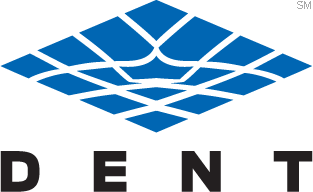Dent Passport holders:
Join us for a Dent@Home briefing Friday, November 10, at 11:00am Pacific Time:
Greg Kisor and David Strehlow on Chip Wars and Navigating the New Silicon Landscape
The unveiling of Huawei's 7 nanometer (N+2) chip, as seen in the Huawei Mate 60 Pro, has catalyzed an industry-wide discussion on the trajectory of China’s semiconductor domain. This discourse is particularly fueled by the existing landscape of Western sanctions and the continual evolution of the global technology narrative.
Join us as Denters Greg Kisor and David Strehlow explore the intricate dynamics of China's semiconductor industry, Huawei's recent breakthroughs, and the wider geopolitical and economic connotations.
Greg Kisor brings over 30 years of experience in technology leadership and intellectual property management. Before founding Ponder Technologies, he worked as the lead patent strategist and principal engineer for Intel. There, he focused on patent portfolio planning and patent license negotiation and managed a team overseeing patent research, reverse engineering, and discovery. He later served as VP, Head of Technology, and Chief Technologist at Intellectual Ventures.
David Strehlow has extensive experience in business development, strategic sales, and operations. He has been involved in global product launches and has assisted Chinese companies in expanding their global presence. Previously, he was the Vice President of Marketing for Huawei's Digital Home Product Line. He is currently an Advisory Board Director for the China Business Studies Initiative at the University of San Francisco.
Key discussion points will include:
Huawei's ability to develop the Kirin 9000S processor despite industry challenges
The potential and real-world performance of Huawei's new chip
Challenges faced by Huawei and China's Semiconductor Manufacturing International Corporation (SMIC) without access to tools like ASML's lithography technology
The position of these companies in comparison to industry leaders like TSMC and Qualcomm
How shifts in China's semiconductor efforts might influence U.S. and allies' sanctions and export control strategies
Join us to gain insights into China's semiconductor industry, Huawei's recent advancements, and the broader implications for the sector.
With Huawei and China's Semiconductor Manufacturing International Corporation (SMIC) navigating the choppy waters of U.S. restrictions, the overarching question emerges: How did Huawei craft a chip that challenges prevailing industry norms? Does the Kirin 9000S processor herald a genuine technological pivot? Or do we need to re-examine its scalability and real-world efficacy?
As China pivots towards semiconductor self-reliance, highlighted by Huawei's recent endeavors, the talk will probe into the challenges and prospects faced by these giants in the absence of tools like ASML's lithography technology. How do they square up against behemoths like TSMC and Qualcomm?
As we peel back the layers of Huawei's 7nm chip production in the face of Western sanctions, the talk will also explore the implications for the semiconductor realm at large. How might these shifts recalibrate the U.S. and its allies' strategies on sanctions and export controls?

